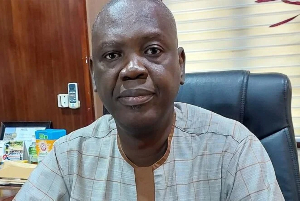Ghana is witnessing a growing interest in adoption, with 158 families seeking to adopt children in the first half of this year alone, data from the Central Adoption Authority (CAA) has revealed.
Within the same period, the Authority, which operates under the Ministry of Gender, Children, and Social Protection, received 220 enquiries about adoption from various interested parties.
Although the Head of the Authority, Mr Stephen Tikai Dombo, who provided these statistics, could not offer comparative data for the same period last year, he was confident that the figures had increased.
“This represents a steady growth in the number of applications over the months, reflecting a strong and growing interest in adoption,” he told the Ghanaian Times in an exclusive interview.
Breaking down the half-year data, he said 24 applications were received in January, increasing to 21 in February 28 in March, and peaking at 41 in April, before decreasing to 25 in May and 17 in June.
The enquiries he noted, numbered 70 in January, 31 in February, 39 in March, 35 in April, 27 in May, and 18 in June.
Mr Dombo said families who had already adopted children continued to express enthusiasm for adopting more, viewing it as a rewarding and blessed act of support for children in need.
He emphasized that adoption was widely regarded as a positive and supportive act, citing a case in the Ashanti Region where a couple, after adopting a child, was blessed with twins of their own within a year.
Encouraging more families to consider adoption, Mr Dombo assured the public of thorough support and monitoring throughout the adoption journey.
He urged the society to refrain from criticizing couple's struggling with fertility and so had taken the bold step to adopt.
Mr Dombo highlighted adoption as an alternative for couples facing infertility issues.
He described it as a socio-legal procedure that transferred parental responsibilities to the adoptive parents, noting that adoption orders were generally irreversible except in rare circumstances.
He, however, pointed out a challenge in the adoption process, with some applicants specifying detailed preferences for children they wished to adopt, such as physical features or age, which can delay the process.
“For instance, an applicant seeking a fair, hairy, and smart child might experience a longer wait time if such a child is not immediately available,” he explained.
Mr Dombo advised applicants to keep their preferences flexible to expedite the adoption process.
The adoption process involves a mandatory investigation period of at least six months to locate a child’s biological parents.
“If the parents are not found within this period, the investigation can be extended. After a year, if no biological parents are located, the child can be placed for adoption,” he clarified.
Assuring the public that adopted children are well cared for, Mr Dombo noted that Ghana is a member of the Hague Convention, which regulates international adoptions.
“The CAA works closely with adoption authorities in other member countries to ensure that children adopted abroad are monitored and well-protected. Post-adoption monitoring is conducted quarterly, with reports including photos and videos sent to prove the children’s well-being,” he said.
From January 2020 to June 2024, Mr Dombo said CAA visited 75 adoptive families across eight regions, including 21 relative adoptions and 54 non-relative adoptions.
“These visits provide psychosocial support, counselling, and any necessary assistance to both the families and the adopted children,” Mr Dombo said.
General News of Sunday, 18 August 2024
Source: ghanaiantimes.com.gh

















